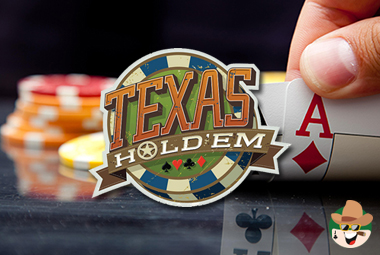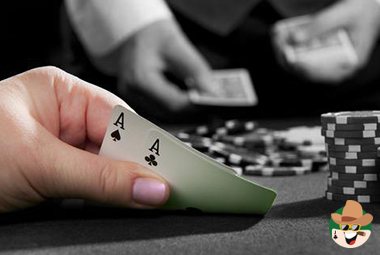

Poker players can get themselves in a heap of trouble by the cards they play, especially if the game is Texas Hold'em.
I should know. I've been playing those hands for more years than I care to remember. And, yes, I have memories and even nightmares of hands that got me into more woes than I cared to handle.
All of the successful poker players pretty much know which hands they should invest their money in. It doesn't take a rocket scientist to realize that pocket aces, kings or queens are worth a raise, or that an A-K is worth seeing to at least fourth street before giving up the hand and signaling for a drink.
Players also have a tendency to get involved in lesser pairs like jacks, 10s, nines or such. If you flop trips, you come out blazing. If you don't, the waitress is always there waiting to take your order for a beer or a tequila sunrise.
But what about the trouble hands? Which hands should a player avoid because of the risk of losing your stack or even your bankroll in a single pot?
Before I get into those trouble hands, let's talk about the reasons most poker players lose. We can start with bad luck.
Bad luck does happen in poker and if it's bad luck that's plaguing you, congratulations. You can overcome bad luck. The longer you play, the better your chances of beating it. Just don't be dumb and contribute to the problem by creating your own bad luck.
Here is another tip. If your bad luck continues for weeks and even months, maybe it isn't bad luck that's the problem. It just might be that you can't play poker and should give up the game.
Let's say your luck isn't bad but you still find yourself losing. The problem might be that you're too predictable. This is probably the problem if you are losing regularly to people that you used to beat.
If you have a very straight forward approach to the game, you might have to make some drastic changes in order to accumulate chips. You might even have to start making some blatant bluffs just to throw off the other players.
The game you are playing in might just be too tough for you. If there are four top players in the game and you rank number five, guess what? You lose. There's no way you're going to consistently beat those four better players.

There are really just three levels of poker that count: what do I have, what do my opponents have, and what do they think I have?
Here's another tip. If a hand is not good enough to raise with, fold it. Either raise or re-raise a pot, or muck your cards. Don't fall victim to the bullies at the table. If you can't be the bully, find yourself another hobby because poker is snot for you.
With that said, here are the nine top trouble hands that plague most Texas Hold'em players.
(1) J-8. Even if you flop Q-10-9, you could be in trouble because a lot of people will play K-J and that would leave you in terrible shape.
(2) A-10. This is a poor hand. If the board flops an ace, you could be beaten by an A-K, A-Q, or A-J. Even an A-9, A-8 or A-7 could flop two pairs and have you beat. The only way you can feel safe with this hand is if you flop two pair or better.
(3) K-Q. This hand looks good, but beware, especially if someone raised the pot before the flop. You could be looking at AO-A, K-K, Q-Q, AO-K or A-Q, all of which would have you soundly defeated.
(4) A-Suited. If you play A-6 of hearts and an ace flops, you will probably lose to a higher kicker. This is where beginning players lose a lot of money.
(5) K-10. This is a weak hand no matter which way you look at it. If there is a raise, get rid of it quickly.
(6) A-J. Again, a weak hand that will often lose to a higher kicker.
(7) Q-9. This is similar to a J-8. A flop of K-J-10 will make you a straight, but an A-Q kills your hand.
(8) J-J. This hand may win for you, but beware. If there are raises or re-raises, you are probably beat.
(9) A-Q. My oh my, a lot of the top players hate this hand. It can win, but it can also be nothing but trouble. Good luck. Let the games begin.
Author: Geno Lawrenzi Jr.
(Geno Lawrenzi Jr. is an international journalist, magazine author and ghostwriter and poker player who lives in Phoenx, AZ. He has published 2,000 articles in 50 magazines and 125 newspapers. If you want to share a gambling story or book idea with him, send an email to glawrenzi@gmail.com ).





